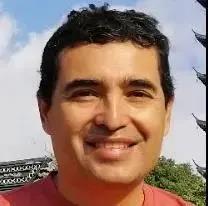作者:Daniel Barredo Ibáñez 发布时间:2020-11-05 来源:China Daily+收藏本文

Daniel Lemus-Delgado
墨西哥蒙特雷科技大学社会科学与政府学院教授
复旦发展研究院特邀研究员
导语
消除贫困是全人类面临的巨大挑战之一,是世界各国共同的目标,谁也不能漠不关心。联合国把“消除一切形式的贫困”确定为可持续发展目标的第一项目标,体现了国际社会克服这一挑战的共同意愿。
这一目标看似过于理想化,实现这一目标不应仅靠道德承诺,而且应该制定一系列切实可行的战略。历史经验告诉我们,减少贫困是可能的。全球极端贫困人口的比例从1990年的36%下降到2015年的10%。然而自那以后,减贫的脚步慢了下来,今年新冠肺炎疫情的全球大流行,更是使得过去几十年来在消除贫困方面取得的进展面临倒退风险。联合国大学世界发展经济研究所指出,疫情造成的经济影响可能使5亿人陷入贫困——这将是自1990年以来贫困人口首次增加。
发展中国家的人民是在疫情期间和疫情过后面临风险最高的人,他们所要面对的不仅是健康危机,还有社会和经济危机。

图片来源:中国日报
尽管前景堪忧,但我们仍可以从各国减贫的成功经验中吸取一些有益的经验教训。在这一点上,中国如何制定和调整扶贫战略和扶贫项目的实践,为各国提供了借鉴。
用联合国拉美和加勒比经济委员会执行秘书长巴尔塞纳 (Alicia Barcena) 的话说,1978年中国开始实行的改革开放政策是现代历史上最成功的经济社会政策之一。
中国已经重构了它的经济,重新树立了它在世界上的地缘政治地位。我由衷地认为,中国最主要的成就之一就是它成功地提高了中国人民的生活水平。
40年来,中国巨大的减贫成就正是因为采用了独特的“中国模式”的结果。
人们不应忘记,在过去40年里,超过7亿中国人摆脱贫困,占同时期全球贫困人口减少量的70%以上,这一成就的得来,靠的是中国政府领导得力、行动有方,靠的是全体中国人民的努力和奉献。

图片来源:中国日报
消除贫困没有一成不变的方法,但中国的经验可以为不同国情的国家提供借鉴:
首先是要坚持改革开放,在反复试验的基础上,以循序渐进的方式进行经济改革,转变经济结构,这是保证高速稳定增长的前提,也是实施任何减贫战略的必要先决条件。
第二,要制定具体细致、可实现的目标,并为这些目标设置明确期限,然后严格落实。
第三是保持政治稳定和凝聚社会共识,这有利于促进经济发展,保障减贫战略的成功实施。
第四是把经济增长的重点放在区域发展上。由国家制定的社会政策旨在改善医疗保健和教育等公共服务。中国的创新能力、科技发展水平和创业文化有力地支撑了经济发展,在这方面中国已经成为全世界的“灯塔”。
最后,为确保公共资源有效地用于扶贫项目,严厉打击腐败也同样重要。

图片来源:中国日报
我们必须看到,贫困问题不只是一个数字那么简单。在宏观数据的背后,是一个个具体的名字、一张张鲜活的面孔、一个个活生生的人,他们理应获得体面的工作、基本的社会保障、生活必需品、以及教育和医疗,在摆脱贫困之后,他们将迎来人生的改变。
认识到了这一点,就不难理解为何在所有的脱贫行动中,每一个人的参与都非常重要。
中国减贫经验的特色之一,是除了资金支持之外,还鼓励党政干部和群众成为志愿者,解决农村贫困问题。例如,四川省动员了约5.8万名公务员和贫困家庭“结对子”,帮助他们脱贫。
中国的经验证明,政府官员和志愿者的参与对于减贫目标的实现至关重要。消除贫困是每个人都应该承担的责任,正如习近平主席所说,它是“人类的共同使命”。当我们意识到,贫困数字背后的那些“穷人”正是和你我一样的人,需要同我们合作以实现脱贫目标时,这个使命就已经开始了。

图片来源:中国日报
The Human Element
One of China's great contributions to the fight against poverty has been seeing the people behind the statistics.
One of the huge challenges humanity faces is the eradication of poverty. This is a common goal that involves all the countries of the world and no one should be indifferent to it. The international community showed its shared will to overcome this challenge when the United Nations established ending poverty in all forms every whereas the first objective of the Sustainable Development Goals.
Although this goal may seem utopian, realizing it should not only be a moral commitment but a plausible objective. History shows us that reducing poverty is possible. Globally, the number of people living in extreme poverty decreased from 36 percent in 1990 to 10 percent in 2015. However, since then the rate of reduction has been slower and the novel coronavirus outbreak has put decades of progress in the fight against poverty at risk. The United Nations University World Institute for Development Economics Research has suggested that the economic consequences of the pandemic could push 500 million people into poverty. This would be the first time that poverty has increased since 1990.
People in developing countries are those most at risk during and after the pandemic, not only in terms of the health crisis, but also because of the social and economic crises that are emerging.
Despite this grim outlook, we can consider the hopeful lessons from how governments have successfully combated poverty. In this context, the Chinese experience offers ways to reconfigure programs to combat poverty. The reduction of poverty in China is the result of the processes and models that the country has adopted over the last 40 years.
In the words of Alicia Barcena, the executive secretary of the Economic Commission for Latin America and the Caribbean, the reform and opening-up policy initiated by China in 1978 is one of the most successful economic and social policies in modern history. China has reconfigured its economy and its geopolitical position in the world, and I sincerely believe that one of the main achievements has been how it has managed to raise the living standards of the Chinese people.
It should not be forgotten that more than 700 million Chinese have escaped poverty in the last 40 years, a number that represents more than 70 percent of the reduction of the poor population worldwide, according to official figures, an achievement made possible by the guidance and actions of the government and by the efforts and dedication of the Chinese people.
There is no single recipe for overcoming poverty. However, the Chinese experience offers lessons for countries with different contexts. The first step was China's reform and opening-up. Based on trial and error, economic reforms were implemented in a gradual way allowing the transformation of economic structures as the first step to guarantee high and constant growth rates, an indispensable precondition for carrying out any program to fight poverty.
Among other actions that the Chinese government took, the most important has been establishing concrete and achievable objectives, with very meticulous goals and deadlines, which are usually strictly accomplished. Also, political stability and social consensus have favored the continuity of successful policies in terms of economic development and poverty reduction. One more condition has been economic growth with a focus on regional development. Besides, social policies are defined by the State alone and these policies are aimed at improving public services such as healthcare and education. China has also become a global beacon in terms of innovation, technological development and its entrepreneurial culture supporting economic development. Finally, no less important has been the relentless fight against corruption, ensuring that public resources are effectively used in programs to overcome poverty.
Among all these actions, the commitment of each person to eradicate poverty is very important. It is necessary to look beyond the macroeconomic figures to find those people who will change their life if they can escape indigence. The Chinese experience shows that in addition to funding, China has encouraged Party officials and other citizens to be volunteers to address poverty in poor villages. For example, some 58,000 civil servants have been mobilized in Sichuan province, each assigned a household to lift out of destitution.
When you put a face and a name on someone who suffers from the conditions of poverty, when you look at a human being who must have the minimum guarantees to have decent work, acquire the essential goods for a full life, access to education and health, then poverty ceases to be just a statistic and there emerges the personal commitment to transforming the conditions of life for poor people. The Chinese experience evidences how the commitment from public officials and volunteers has been essential to the success of public policies to end poverty. At the end of the day, as President Xi Jinping has affirmed, the eradication of poverty is the common mission of all humanity. This is a task everyone should undertake. This mission begins when you and I look beyond figures and recognize the poor as human beings that need us to collaborate to realize this inalienable goal.
The author is a professor at the School of Social Science and Government of Tecnologico de Monterrey and invited researcher of Fudan Development Institute at Fudan University. The author contributed this article to China Watch, a think tank powered by China Daily. The views do not necessarily reflect those of China Daily.
Please click read more to get further information.
文章来源丨China Daily